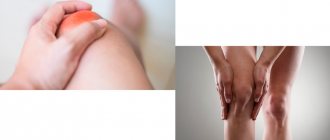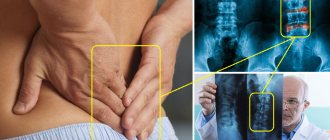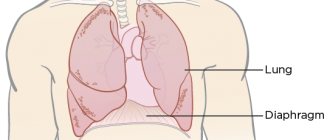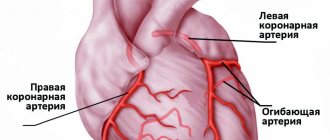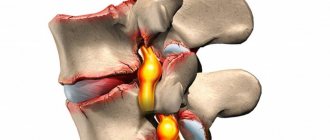02.07.2018
Head and neck diseases | Brain
Psychosomatics (from the Greek words “soul” and “body”) is a branch of medicine that seeks answers to the questions “why” and “how.” A “bad head” haunts not only the legs, but also other organs and systems of the body. It has been known for a long time that “psyche” and “physics” are closely connected and influence each other. In the occurrence of almost all bodily ailments, the state of a person’s psyche, if not the direct cause, then at least acts as a predisposing factor and subsequently significantly influences the course and prognosis of the disease.
Diseases in which this connection can be seen especially clearly are often called neurotic disorders (neuroses). This term refers to a wide range of disorders of the internal organs and systems, the cause or reason for which was psychogenic factors, for example, acute or chronic stress.
Stress itself is a protective reaction of the body, designed to help it cope with the “emergency” situation that has arisen and be prepared for its repetition. But the peculiarity of our time is that we are almost constantly in a state of stress. And it is caused (if we do not consider truly extreme situations) by factors that do not pose a direct threat to our physical survival. But very ancient mechanisms, designed to preserve life, work regardless of who is threatened from the outside - the body or the psyche. As a result, it turns out that the body’s reaction to stress becomes inadequate, meaningless and very energy-consuming. And sooner or later this leads to the depletion of adaptive reserves and the transformation of defense mechanisms into self-destructive ones.
For example, not long ago, neuroscientists found that when we are afraid that our opinion will not be approved and needs to be protected (argument, exams, etc.), our brain switches to an operating mode that ensures survival in a life-threatening situation: partially The cortical centers are blocked and the subcortical centers are activated, which activates the lightning-fast “fight or flight” mechanism. As a result, instead of sensible thinking, impenetrable dullness sets in, and instead of a conscious reaction, an “adrenaline storm” sets in.
Heart symptoms
With cardioneurosis, the main discomfort for patients comes from attacks of pain in the heart. Their intensity varies, as does the duration, which varies from 15 minutes to 2-3 days. An attack occurs mainly after stress. Its frequency is individual in each case. Suspicious people can experience discomfort 5 times a day. Other patients suffer from attacks of heart pain only 1-2 times a year due to nervous exhaustion.
Patients remember the manifested pain in the heart well and begin to worry greatly about their condition. The situation reaches the point of an obsession about imminent death. Cardiologists and therapists have to deal with particularly suspicious patients. Doctors try to explain to the patient that no organic lesions have been identified and recommend contacting a psychotherapist.
It is problematic to draw an overall clinical picture, since patients describe their condition in different ways. We have to focus on the most common cardiac symptoms of cardioneurosis:
- aching and throbbing pain combined with increased sensitivity of the skin on the part of the heart;
- feeling of emptiness in the chest;
- pain throughout the left half of the body with a focus in the heart area;
- pain radiating to the back, head, neck and genitals;
- pressing sensation in the chest;
- stabbing and cutting sensations in the chest, preventing deep breathing.
Pain in the chest is not relieved by Nitroglycerin tablets and other cardiac medications and decreases only after rest. You can distinguish an attack of cardioneurosis from heart disease by the following nuances in the patient’s behavior:
- When describing the symptoms of heart neurosis, the patient tries to embellish it and each time the story changes a little.
- An attack of cardioneurosis causes a person to have obsessive thoughts about imminent death and the “severity” of cardiac pathology. He becomes overly concerned about his health and often experiences panic attacks.
- An attack causes a person to fuss excessively, actively gesticulate, alternately apply cold and heat to the chest, and take all kinds of heart medications.
People who actually suffer from diseases of the cardiovascular system behave with restraint. They can take the medication recommended by the doctor and call an ambulance if necessary. With neurosis, a person is excessively fussy, which reveals his real illness. Calling an ambulance during an attack is often provoked by obsessive thoughts. Visiting doctors must distinguish real cardiac pathology from a panic attack and advise how to treat cardiac neurosis.
about the problem
Cardioneurosis (false heart pain) is paroxysmal painful sensations in the heart area in the absence of organic pathology of the heart itself (i.e., the heart muscle tissue is not affected).
The disease manifests itself in the form of sudden attacks of palpitations, pain or discomfort in the heart area. By their nature, such pain can be constant aching or paroxysmal, dull, sharp, burning, with a feeling of heaviness, squeezing or tingling.
Pain can spread from the heart to the left shoulder blade, to the back, to the neck, to the lower back, to the perineal organs. Sometimes there is a burning sensation under the lower ribs on the left, a “lump in the throat,” and unpleasant sensations in various parts of the body.
In addition to the pain in the heart itself, cardioneurosis is characterized by fading and interruptions in its work, numbness of the skin of the chest, headaches, dizziness, coldness and sweating of the hands and feet. In more severe cases, there is a feeling of lack of air, suffocation, attacks of heat or chills, a feeling of loss of consciousness, accompanied by fear and a panic attack.
The frequency of attacks in cardioneurosis ranges from several per day to 1-2 per year.
The first attack of cardioneurosis usually occurs suddenly after a stressful situation. However, the ground for the emergence of complaints has already been prepared by long-term illnesses, chronic emotional stress and overwork, regular lack of sleep, bad habits and intoxications. Outside of attacks, a person during emotional stress may feel palpitations and sweating of the hands. Characterized by sudden mood swings during the day, fluctuations in blood pressure, weather dependence, decreased performance, and sleep disturbances.
Cardioneurosis develops against the background of a disruption of the nervous system, which causes interruptions in the heart. The causes of malfunction of the nervous system are: impaired cerebral circulation, infections of the nervous system, nervous tension, constant overwork, bad habits, chronic diseases, hormonal changes in the body.
Cardioneurosis can lead to the development of severe heart diseases such as angina, hypertension and others.
General clinical picture
The cardiac symptoms of cardioneurosis worry patients most of all, but other manifestations are also characteristic of the disease. Their intensity varies depending on the individual characteristics of the person. General symptoms of cardiac neurosis during an attack are usually the following:
- a feeling of anxiety that develops into panic;
- obsessive thoughts (obsessive syndrome) about imminent death and the development of fatal pathologies;
- feeling of a lump in the throat;
- lack of oxygen;
- frequent shallow breathing;
- feeling tired even with the slightest overload;
- inability to take a deep breath;
- headache;
- excessive sweating;
- alternating sensations of heat and cold throughout the body;
- loss of consciousness or faintness.
After the attack ends, the person feels a loss of strength and drowsiness. Heavy thoughts appear in your head that prevent you from falling asleep at night.
Heart pain and other signs of neurosis
A characteristic sign of neurosis is pain in the sternum. An attack can last from 10-15 minutes to several hours, while the person will be restless, overly emotional, and fussy. He often becomes hysterical. This distinguishes cardioneurosis from true angina, in which the patient, on the contrary, tries to lie down and freezes from painful sensations.
People with neurosis describe pain in different ways - heat or cold in the sternum, the heart feels like it is being squeezed in a vice or, conversely, “jumps out”, it aches or stings. It is noteworthy that the description of the nature and intensity of pain during different attacks will differ. The frequency will also be inconsistent. For example, if a person rests more and his emotional state stabilizes, the pain disappears. At other times, they may bother you several times a week.
Seizures always leave an imprint on the patient’s further condition. Thus, it is precisely for patients with cardioneurosis that an obsessive fear of death is characteristic, which easily provokes panic attacks.
Additionally, a person may exhibit the following signs of neurosis:
- Dizziness, sometimes with nausea and faintness.
- Increased sweating.
- Headache.
- Feeling hot or cold.
- Sleep problems - insomnia or, conversely, drowsiness.
- Difficulty breathing - it is difficult for a person to take a deep breath; rapid, shallow breathing is observed.
Causes
The development of cardioneurosis is influenced not only by external factors, but also by internal ones. A full list of reasons can be seen below:
- hormonal surges associated with illness, adolescence, pregnancy, menopause, taking medications;
- long-term course of pathology without improvement;
- constant feeling of stress;
- insomnia;
- frequent physical and mental overload;
- intoxication due to the effects of chemical compounds on the body;
- bad habits;
- poorly designed diet.
In childhood, the cardiac type of neurosis occurs against a background of stress during school or due to quarrels in the family, parental divorce and other factors that negatively affect the fragile psyche. In adolescence, the reasons remain the same, but the situation is aggravated by hormonal changes.
Cardioneurosis: causes
The immediate cause of the characteristic manifestations of cardioneurosis are disturbances in the body’s regulatory systems (nervous, immune, endocrine, cardiovascular), which are responsible for its response to external influences and maintaining internal stability. These disorders, in turn, arise from a combination of internal conditions and external provoking factors. The first include genetically predetermined constitutional characteristics of a person (types of physiological and mental reactions, including some character traits - mental instability, a tendency to panic, suspiciousness, anxiety, etc.). The second includes physical and mental trauma; intoxication caused by acute and chronic diseases, poisoning, unhealthy lifestyle, etc. All this leads to chronic stress - “fertile soil” for the development of all types of neurotic disorders.
First aid
The manifestation of cardioneurosis is difficult to predict, especially if a person has not previously experienced such discomfort. You can find out how to get rid of an attack of heart neurosis from the information below:
- During an attack, it is better for the patient to find a well-ventilated room to compensate for the lack of oxygen.
If possible, it is advisable to lie down on a sofa or bed. If they are missing, the floor will do.- Take any mild drug with a sedative (calming) effect (Valocardin, alcohol tinctures of motherwort, lemon balm, valerian).
- Take your pulse. If it can be easily felt and does not malfunction, this means that there are no severe functional impairments.
- Calm down and lie down, trying not to think about anything. Excessive fuss, constant measurements of pressure, pulse and calls to relatives and friends will only increase anxiety.
Relief occurs in about 15-20 minutes. To prevent further attacks, it is advisable to consult a therapist. He will send you for an examination and, based on its results, will draw up a list of recommendations. Drug treatment is required only in severe cases. In most cases, you can get by with lifestyle correction and traditional medicine. If the pain in the heart does not go away or the patient is in a pre-fainting state, then it is necessary to call an ambulance.
Drug treatment
Drugs are prescribed to relieve pain, normalize heart rhythm, relieve shortness of breath and calm the nervous system. The following groups of medications are mainly used:
- It is advisable to use sedative medications for a course lasting at least 1-2 months to obtain a lasting effect. Alcohol tinctures of herbs (motherwort, peppermint, valerian) and medications with a sedative effect (Valocordin, Validol, Persen) are used.
- Antidepressants (Pyrazidol, Amitriptyline, Imizin) suppress depression, improve mood and stimulate the nervous system. Initially, they often cause drowsiness due to the strong sedative effect, but the side effect gradually wears off.
- Tranquilizers (Seduxen, Phenazepam, Nitrazepam) relieve nervous tension and eliminate anxiety and fear. If the patient is more concerned about phobias that arose against the background of an attack of cardioneurosis, then it is better to take Seduxen. Nitrazepam effectively helps with insomnia, and Phenazepam is used to suppress depression.
- Associated headaches can be eliminated with analgesics (Citramon, Spazgan, Drotaverine).
- Vitamin complexes with a high concentration of B vitamins (“Neurovitan”, “Neuromultivit”) are used to improve the condition of the nervous system.
Potassium-containing drugs (Asparkam, Orocomag) are used to stimulate the conductive function of the heart and normalize the transmission of nerve impulses.
Vitamins, potassium-containing preparations and alcohol tinctures with a sedative effect can be taken without any particular concern. For chemical-based analgesics and sedatives, it is necessary to study the contraindications. It is prohibited to take antidepressants and tranquilizers on your own. They have a strong effect on the nervous system, so they are sold by prescription.
The exceptions are children under 18 years of age and women during pregnancy and breastfeeding. For these groups, drug therapy is selected only by the attending physician, who, after the examination, will tell you how to treat cardiac neurosis and advise safe methods. In other cases, you can self-medicate only at your own peril and risk.
Non-drug therapy
Treatment of cardioneurosis is possible without pills. The essence of non-drug treatment is lifestyle correction:
- try not to get into stressful situations;
- maintain a positive attitude;
- work no more than 7-8 hours a day and take 5 minute breaks once every hour and a half;
- devote at least 6-8 hours to sleep;
- do not overwork physically and mentally;
- walk in the fresh air for 1-2 hours every day;
- exercise (moderately), do morning exercises;
- give up bad habits (smoking, drinking alcohol).
Gymnastics for cardioneurosis should be moderate and aimed at strengthening the heart muscle. Running, swimming and aerobic exercise are good options.
The patient will have to change his diet to get rid of heart neurosis. By giving up fast food, sweets, spices and other unhealthy foods in favor of healthy foods, you can significantly improve your overall health. The daily menu should include more vegetables and fruits. It is advisable to eat at least 4-5 times a day, in small portions. The last meal should be 3-4 hours before bedtime.
People who spend most of their time working need to dilute their busy schedule. You should rest at least 2-3 hours a day, doing your favorite hobby, listening to music or going to a massage.
Psychotherapy
Taking medications alone can stop the manifestations of the disease, but cannot eliminate its cause. To completely cure cardioneurosis, you will have to normalize the functioning of the nervous system with the help of a psychologist or psychotherapist. Communication with a specialist will eliminate the feeling of anxiety, clear your head of obsessive thoughts and strengthen your psyche to effectively resist panic attacks.
Specialists mainly use the following methods of psychotherapy:
- Rational treatment. The doctor helps the patient understand why attacks occur and then teaches him how to effectively deal with them.
- Cognitive behavioral therapy. During the conversation, the psychotherapist talks about the patient’s actions that provoke the development of cardioneurosis and points out his mistakes in order to prevent their recurrence in the future.
- Family sessions. You can come to a conversation with a specialist with close people with whom the patient spends most of his time. Family psychotherapy is most effective for treating couples and children. During the sessions, the doctor will learn about problems and recommend methods to eliminate them.
- Hypnosis is used if the patient is unwilling or unable to share the hidden reasons for his condition. The specialist will put him to sleep and learn about all the problems on a subconscious level.
To achieve noticeable results, it usually takes about 10-15 sessions. It is advisable to combine them with lifestyle correction. The doctor will recommend drug treatment if necessary.
Neurosis - symptoms and treatment
Treatment of neuroses is divided into two methods - psychotherapy and pharmacotherapy. The most optimal results can be achieved with a complex combination of two methods.
The need to introduce pharmacological agents, in particular psychotropic substances, arose due to the impossibility of providing high-quality psychotherapeutic assistance to everyone. Summarizing my experience in treating neuroses, I can say that very often the use of drugs is very helpful in starting treatment. This is applicable and indicated for those patients who at first find it very difficult to open up to the doctor; they consider their life to be already prosperous. Over time, while they take the drugs, they feel an improvement and then more willingly agree to psychocorrection.
And now there are supporters of only a psychotherapeutic or only a pharmacotherapeutic approach. It seems more rational to determine an individual treatment plan in each specific situation. Since we are talking about psychotrauma as a starting point, not a single case of neurosis can do without psychotherapy. Whereas many patients do not need to be prescribed medications.
Pharmacotherapy
Of all the psychotropic drugs, tranquilizers have become the most popular in the treatment of neuroses. Now there are a huge number of them on the market, and if necessary, the doctor will determine the one that is suitable for a particular patient.
Tranquilizers allow you to achieve many positive goals:
- reduce the emotional excitability of patients;
- improve sleep: patients fall asleep better, sleep quality improves;
- reduce vegetative manifestations of neurosis;
- reduce irritability and nervousness.
In addition, neuroleptics, antidepressants, and various psychostimulants can be used for treatment among psychotropic drugs. General strengthening drugs (vitamins, nootropics, neuroprotectors) are widely used.[9]
The course of treatment is individual and is selected depending on the degree of influence of biological factors on the occurrence of the disease. Drugs are selected taking into account the characteristics of the patient, the intensity of symptoms and types of neurotic syndromes.
Psychotherapy
It is well known and constantly confirmed in practice that most patients are completely unaware of the significance of many life situations and circumstances that in one way or another led to the disease. At the initial appointment, patients declare the well-being of their lives, even while presenting typical neurotic complaints.
This is due, on the one hand, to the conscious attitude “not to think about bad things” and ignorance of the possible degree of influence of psychological and social factors. On the other hand, often doctors of clinical specialties, whose field of view includes patients with neuroses, do not have sufficient qualifications to identify these factors.
The goal of psychotherapy is for the patient to understand the impact of traumatic situations on his illness. This is an important component of treatment. It is necessary to change a person’s attitude towards those situations, to give him new experience and to gain experience for the future. Often it is necessary to remove the patient from “his childish position”, which manifests itself in the use of childish ways of responding. Neuroscientists have proven that the neural pathways of reaction and formation of emotions are formed in humans before the age of seven.[10] Accordingly, our task is to expand the ways we respond. To get results, you need to change your life.
Psychoanalysis, person-oriented therapy, and suggestive (suggestion) psychotherapy were previously used as a method of psychotherapy. Today we have a much greater variety of techniques: neuro-linguistic programming, body-oriented therapy, systemic psychotherapy, metaphorical associative maps, personal and program-oriented coaching. It should be remembered that often it is a combination of different methods that gives effectiveness.
Breathing exercises and massage
Breathing exercises and massage are effective in treating neurosis, but they are additional means. They, like other treatment methods, are prescribed by the attending physician. He explains to the patient what kind of breathing exercises, how often and for how long to perform, and most importantly, why it is needed and what effect should be expected from it.
Folk remedies
The effectiveness and safety of traditional medicine methods have not been scientifically proven. Before taking sedative herbal remedies, you should consult your doctor.
How to help a loved one with neurosis
The participation of loved ones in therapy is also determined by the attending physician; in the treatment of neurosis, by a psychotherapist. The doctor will explain how family members will help.
Diet and lifestyle recommendations
For neurosis, universal methods of general nonspecific prevention are recommended:
- reasonable work and rest schedule;
- balanced mental and physical activity;
- getting enough sleep at night;
- good nutrition;
- active and varied leisure time.
When treating neuroses, diet is not important. It will be useful to eat regularly and balanced.
Folk remedies
Folk remedies help with the treatment and relief of symptoms of heart neurosis. In most cases, herbal teas with a sedative effect are used. They actually have no contraindications, except for individual intolerance, but during preparation it is important to follow the dosages indicated in the recipe. If you exceed them or underestimate them, the effect will be too strong or completely absent. As a standard, 1-2 tbsp is taken for preparing the decoction. l. main ingredient per 500 ml of water or alcohol. Then the resulting mixture is thoroughly mixed and left to infuse.
The following folk remedies are the most effective for treating and relieving symptoms of heart neurosis:
- A decoction of mint and valerian roots calms the nerves well. You can prepare the medicine by taking 1 herb or both in equal proportions. It is taken instead of tea, 2 times a day.
- The combination of dried apricots, raisins and hawthorn, viburnum and rowan fruits will saturate the body with the microelements necessary for the normal functioning of the heart and nervous system. Prepare like a regular decoction. You can drink it instead of tea 2-3 times a day.
- Drink warm milk at night with the addition of 1 tsp. honey improves sleep and calms the nervous system.
The following fees can be used as a remedy for the treatment of cardioneurosis:
- mint, valerian roots, hop cones, three-leaf watch;
- hawthorn fruits, oregano, motherwort;
- hop cones, yarrow, valerian roots, lemon balm.
After preparing one of the decoctions, it should be taken 3 times a day, 100 ml. Course duration – 1 month. If allergy symptoms occur, treatment of heart neurosis with folk remedies is stopped, and you should consult a doctor as soon as possible.
Forecast
Cardioneurosis is successfully eliminated in the early stages. Residual effects and relapses do not occur with an integrated approach to treatment.
In its advanced state, the disease has a detrimental effect on the patient’s psycho-emotional background. He becomes suspicious, overly irritable and fearful. A constant feeling of anxiety negatively affects all internal processes. Basically, the stool is disrupted, hypertension and angina develop. Treatment will be aimed at reducing nervous excitability and stabilizing the digestive and cardiovascular systems.
Cardioneurosis is a psychosomatic disease. Its development is provoked by frequent stress and overwork. The main problem arises in the diagnostic process. To differentiate cardiac neurosis, the therapist will have to exclude all similar pathological processes. After successful diagnosis, the patient is given recommendations for lifestyle correction. In advanced stages, medication may be prescribed. Psychotherapy and folk recipes are successfully used to complement the course of treatment.
Heart diagnostics
The main task of diagnosis for cardiac neurosis is to differentiate the disease from pathologies of the cardiovascular system. A cardiologist can make a preliminary diagnosis by collecting an anamnesis - a characteristic description of attacks, the general emotional state of the patient. And yet, in order to exclude organic heart damage, a person needs to undergo the following examinations:
- Auscultation.
- Resting ECG.
- ECG with stress (stress tests).
- EchoCG.
If no pathologies are identified after the examination, the patient is referred to a psychotherapist and subsequently undergoes treatment from this specialist. In addition, it must be taken into account that neurosis can affect the condition of the heart muscle and cause diseases of the cardiovascular system. In this case, the patient should be observed by two specialists - a cardiologist and a neuropsychiatrist.


